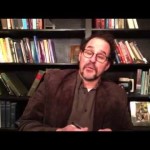We run our website the way we wished the whole internet worked: we provide high quality original content with no ads. We are funded solely by your direct support. Please consider supporting this project.
What’s the significance of Isaiah 63:8-10?
The Lord said (or “thought”) to himself, “Surely they are my people, chidren who will not deal falsely.” So, the text says, “He became their savior” (Isa. 63: 8). But “they rebelled and grieved his holy spirit.” So the Lord “became their enemy” (9-10).
If the future is exhaustively settled from all eternity, how could the Lord expect Israel to behave one way, only to find them later behaving a different way? (cf. Isa 5:1-5 ; Jere 3:6-9; 19-20; 36:3ff).
Category: Q&A
Tags: Open Theism, Q&A
Topics: Open Theism
Verse: Jeremiah 63
Related Reading

Henry’s Mom: Did God Author This?
Many of you were touched last month when we featured some reflections on little Henry’s death. Well, Henry’s mother Jess has started a blog to process through some of her thoughts and we wanted to share this amazing piece with all of you. Jess thinks ahead to the time when her two-year-old daughter will start…

Free Will: What about “natural” evil? Was Hurricane Sandy a Free Agent?
What about natural evil? How does free will help to make sense of this? Greg reflects on the origins of sickness, natural disaster, animal suffering and so on. Hope you’re enjoying the series so far. There’s more to come!

How do you respond to Genesis 16:12?
The Lord describes Ishmael as “…a wild ass of a man, with his hand against everyone, and everyone’s hand against him.” According to most Old Testament scholars the Lord is describing Ishmael’s descendants as much as he is describing Ishmael himself. The Lord foresaw that the nation which would descend from Ishmael (cf. 21:18) would…

What is the significance of Deuteronomy 9:13–14, 18–20, 25?
The Lord tells Moses “Let me alone that I may destroy them [the Israelites] and blot out their name from under heaven…” (vs. 14). Moses later says to the Israelites, “the Lord intended to destroy you” (vs. 25). Moses interceded for forty days and then tells the Israelites, “the Lord listened to me…” (vs. 19).…

What is the significance of 1 Chronicles 21:15?
“And God sent an angel to Jerusalem to destroy it; but when he was about to destroy it, the Lord took note and relented concerning the calamity; he said to the destroying angel, ‘Enough! Stay your hand.’” This powerful passage tells us why God sent the angel and why he changed his mind. If God…

How do you respond to Matthew 21:1–5?
Jesus commanded his disciples, “Go into the village ahead of you, and immediately you will find a donkey tied, and a colt with her; untie them and bring them to me. If anyone says anything to you, just say this: ‘The Lord needs them.’ And he will send them immediately” (vs. 1-4). Though this verse…
